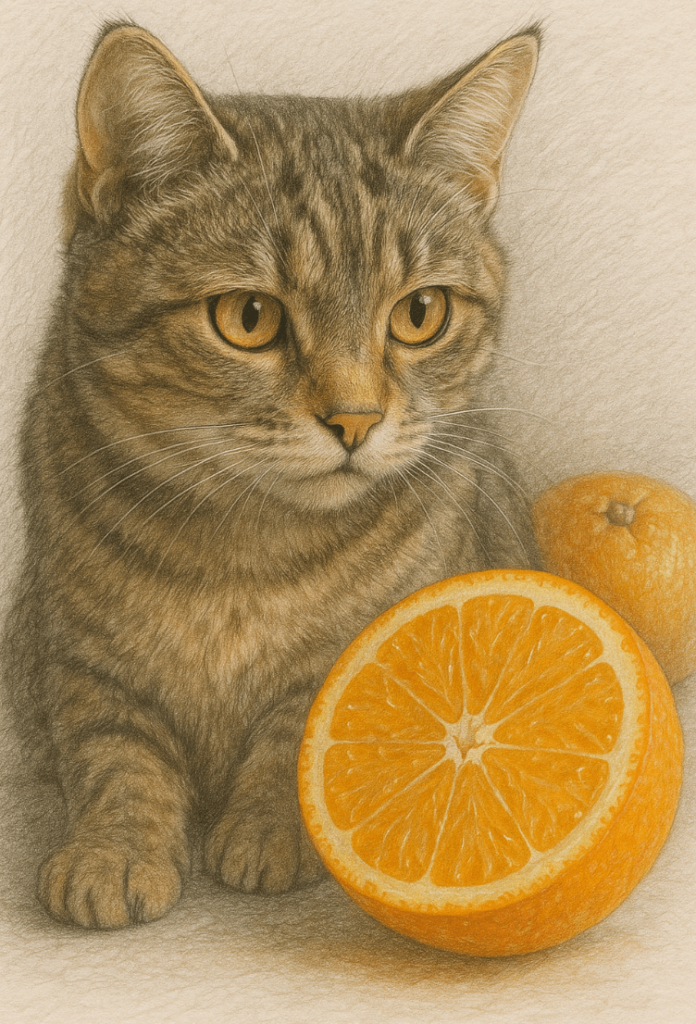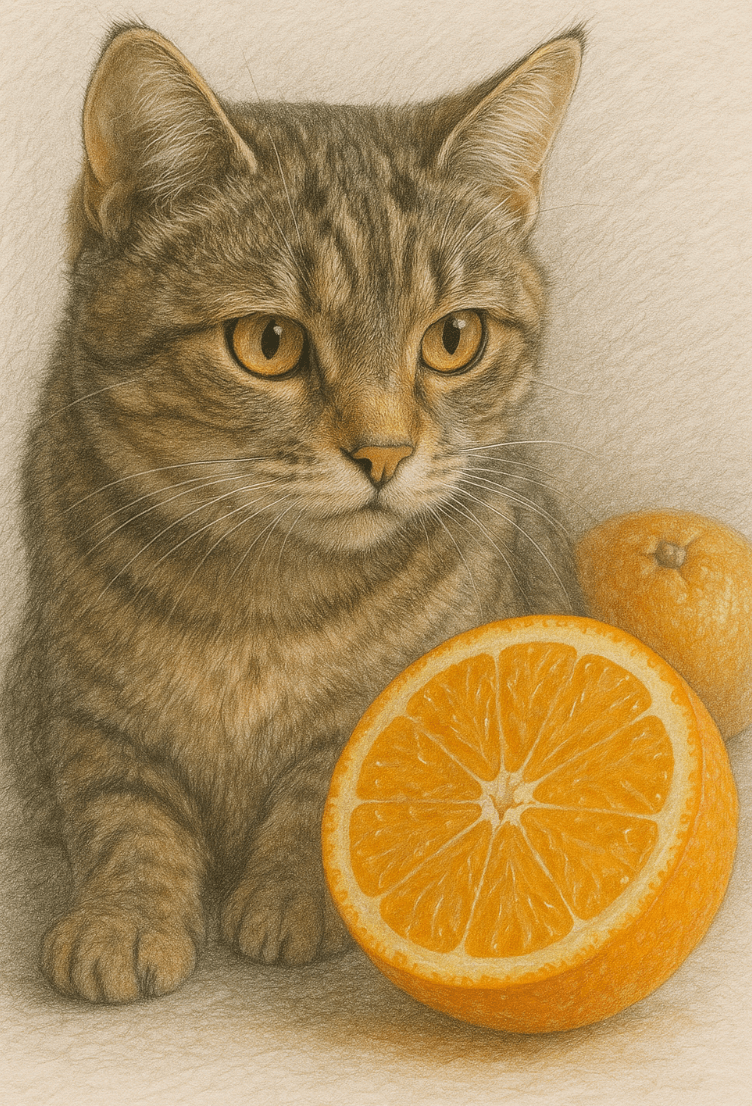Can Cats Eat Oranges? What You Need to Know
Cats are curious creatures, and it’s not uncommon for them to show interest in the foods we eat. If you’ve ever wondered whether your feline friend can safely enjoy a slice of orange, you’re not alone. While oranges are packed with vitamin C and other nutrients that benefit humans, the same cannot be said for cats. In fact, citrus fruits like oranges can pose serious risks to our furry companions. Understanding why oranges are unsuitable for cats—and what alternatives exist—will help you make informed decisions about their diet. In this blog post, we’ll explore everything you need to know about cats and oranges, from potential dangers to safer snack options.
Why Oranges Are Harmful to Cats
While oranges may seem harmless, they contain compounds that can upset your cat’s digestive system or even harm their overall health. Here are the main reasons why oranges are not safe for cats.
Toxic Essential Oils:
The peel and pith of oranges contain essential oils like limonene and linalool, which are toxic to cats if ingested in large amounts.High Acidity Levels:
The citric acid in oranges can irritate your cat’s stomach, leading to vomiting, diarrhea, or discomfort.Lack of Nutritional Value for Cats:
Unlike humans, cats do not require vitamin C in their diet, as their bodies naturally produce it. Feeding them oranges offers no nutritional benefit.Potential Allergic Reactions:
Some cats may experience allergic reactions, such as itching, swelling, or difficulty breathing, after consuming citrus.Risk of Choking or Blockages:
Small pieces of orange peel or fruit can pose choking hazards or cause intestinal blockages if swallowed.
These factors highlight why oranges should be avoided entirely when it comes to feeding your cat.
Signs Your Cat May Have Eaten Oranges
If your cat accidentally consumes orange or any citrus fruit, it’s important to watch for signs of distress or toxicity. Recognizing these symptoms early can help you seek prompt veterinary care.
Vomiting or Diarrhea:
These are common reactions to the high acidity and toxic compounds found in oranges.Excessive Drooling:
Irritation in the mouth or throat caused by citrus oils can lead to increased drooling.Lethargy or Weakness:
Toxicity from oranges may cause your cat to appear unusually tired or unresponsive.Loss of Appetite:
Gastrointestinal upset often results in a refusal to eat or drink.Skin Irritation:
Contact with orange peel or juice can cause redness, itching, or irritation on your cat’s skin.
If you notice any of these signs, contact your veterinarian immediately to ensure your cat receives proper care.
Check this guide 👉Can Cats Eat Turtles? Best 7 Expert Tips!
Check this guide 👉Can Cats Eat Sea Salt? Best 7 Expert Tips!
Check this guide 👉Can Cats Eat Pork? Best 7 Expert Tips!

Safe Fruits for Cats | Foods to Avoid Giving Cats |
|---|---|
Blueberries (in moderation) | Oranges and other citrus fruits |
Watermelon (seedless) | Grapes and raisins |
Apples (without seeds) | Chocolate |
Bananas (small amounts) | Onions and garlic |
Strawberries (occasionally) | Alcohol or caffeinated drinks |
How to Safely Introduce New Foods to Your Cat
While oranges are off-limits, there are plenty of safe and healthy snacks you can offer your cat. Follow these guidelines to ensure a positive experience when introducing new foods.
Consult Your Veterinarian First:
Always check with your vet before offering your cat any human food, even if it seems harmless.Start with Small Portions:
Introduce new foods gradually and in tiny amounts to monitor how your cat reacts.Avoid Seasonings or Additives:
Plain, unseasoned foods are safest, as spices, salt, and sugar can harm your cat’s health.Observe for Adverse Reactions:
Watch for signs of allergies, digestive issues, or other negative reactions after trying a new food.Stick to Cat-Friendly Options:
Focus on foods specifically known to be safe and nutritious for cats, like cooked chicken or plain pumpkin.
By following these steps, you can safely expand your cat’s palate without compromising their well-being.
Alternatives to Oranges for Treating Your Cat
If you’re looking for healthy treats to spoil your cat, there are plenty of cat-safe options that won’t put their health at risk.
Cooked Chicken or Turkey:
Plain, unseasoned poultry is a protein-rich treat most cats love.Pumpkin Puree:
A small spoonful of plain pumpkin aids digestion and can help with hairballs.Freeze-Dried Meat Snacks:
Commercially available freeze-dried treats are convenient and loved by cats.Cat Grass:
Many cats enjoy nibbling on cat grass, which can aid digestion and satisfy their natural grazing instincts.Specialized Cat Treats:
Look for vet-approved treats designed specifically for feline dietary needs.
These alternatives provide safe and enjoyable ways to reward your cat without the risks associated with citrus fruits.
Common Mistakes When Feeding Cats Human Food
Feeding your cat human food can be risky if done incorrectly. Avoiding these common mistakes will help protect your pet’s health.
Assuming All Fruits Are Safe:
Not all fruits are cat-friendly; many, like oranges, grapes, and cherries, can be toxic.Ignoring Portion Sizes:
Even safe foods can cause problems if given in excessive amounts, leading to obesity or digestive upset.Adding Spices or Sugars:
Ingredients like garlic, onion powder, or artificial sweeteners are highly dangerous for cats.Forgetting Individual Tolerances:
Every cat is different; what one tolerates well might upset another’s stomach.Skipping Veterinary Advice:
Always consult your vet before introducing new foods to avoid unintended consequences.
Avoiding these errors ensures your cat enjoys a healthy and balanced diet.
Health Risks Associated with Toxic Foods
Certain foods pose significant risks to cats, and understanding these dangers helps prevent accidents.
Kidney Damage from Grapes/Raisins:
Even small amounts can lead to kidney failure in cats.Onion and Garlic Toxicity:
These ingredients destroy red blood cells, causing anemia and breathing difficulties.Chocolate Poisoning:
Theobromine and caffeine in chocolate are toxic, leading to seizures or heart problems.Alcohol Consumption:
Even a small sip can result in vomiting, disorientation, and liver damage.Dairy Products:
Despite popular belief, many cats are lactose intolerant and may experience diarrhea after consuming milk or cheese.
Awareness of these risks empowers you to keep your cat safe from harmful foods.
Fun Ways to Treat Your Cat Without Food
Rewarding your cat doesn’t always have to involve food. These non-food-based ideas are fun, engaging, and great for bonding.
Interactive Playtime:
Use feather wands, laser pointers, or toy mice to stimulate your cat’s hunting instincts.Scratching Posts and Pads:
Providing designated scratching areas satisfies their natural urge to scratch while keeping furniture intact.Grooming Sessions:
Brushing your cat’s fur or giving them a gentle massage can feel like a luxurious treat.New Toys and Puzzles:
Rotate toys regularly or introduce puzzle feeders to keep your cat mentally stimulated.Affection and Attention:
Spending quality time cuddling or talking to your cat strengthens your bond and makes them feel loved.
These activities offer rewarding experiences without relying on potentially harmful treats.
Frequently Asked Questions About Cats and Oranges
Is orange juice safe for cats?
No, orange juice contains concentrated citric acid and sugars, making it unsafe for cats.
What happens if my cat licks an orange peel?
While small amounts may not cause harm, prolonged exposure or ingestion can lead to irritation or toxicity.
Can kittens eat oranges?
Kittens are more vulnerable to toxins than adult cats, so oranges should be strictly avoided.
Are all citrus fruits harmful to cats?
Yes, all citrus fruits, including lemons, limes, and grapefruits, contain compounds toxic to cats.
What should I do if my cat eats an orange?
Monitor for symptoms of distress and contact your veterinarian promptly if any adverse reactions occur.
Prioritizing Your Cat’s Health Around Citrus Fruits
While oranges may be a refreshing treat for humans, they are simply not suitable for cats. Their toxic compounds, high acidity, and lack of nutritional value make them a poor choice for feline diets. By understanding the risks and opting for safer alternatives, you can ensure your cat stays healthy and happy. Remember, your cat relies on you to make the best dietary choices for them, so always prioritize their well-being over curiosity. With the right knowledge and precautions, you can provide your furry companion with a balanced and enjoyable diet.
Do Cats Have Taste Buds? Best 7 Expert Tips! – Discover how cats experience flavors and why their taste is so unique.
Do Dogs Have Taste Buds? Best 7 Expert Tips! – Discover how dogs experience taste, their preferences, and what it means for their diet and health.
Can Cats Taste Sweet? Best 7 Expert Tips! – Discover why cats can’t taste sweetness, how it affects their diet, and tips to keep them healthy and happy.
Can Dogs Taste Sweet? Best 7 Expert Tips! – Discover how dogs perceive sweetness, which foods are safe, and tips to manage their sweet cravings responsibly.





